The Thermal
It was his fifth or sixth time out. In the harbor at La Paz, currents run strong against a North wind, making choppy waves and bringing a chill. Instead he rested in a cove a few miles outside of the harbor. He was sailing for the day.
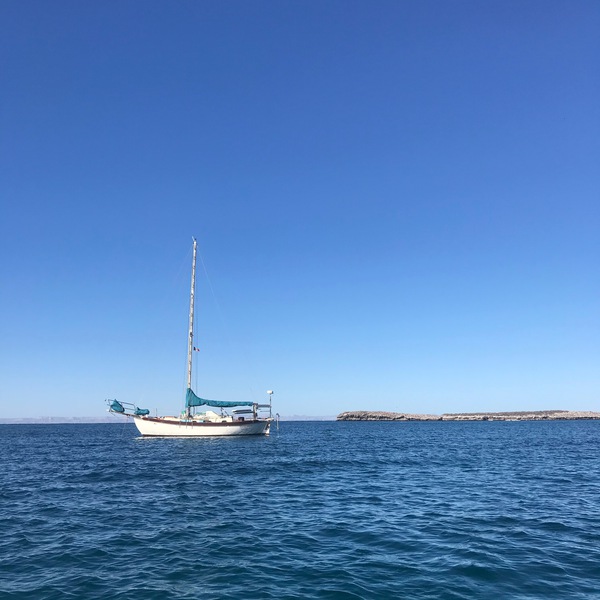
The day had started slowly. The usual North wind to blow him out of the cove had not materialized. Instead, a light breath of wind came from the southwest. He had to tack into the open water next to Isla Lobos. He drifted up the shore for an hour before something stronger came up and let him tack away.
He carried a tack to a mile offshore, then tacked toward the anchorage at Playa Balandra. That’s when things became strange.
The wind backed, and then died. The sails flagged for a minute. Then the boat headed up into the wind as it never does. He noticed this and wondered. It bugged him. How did that happen?
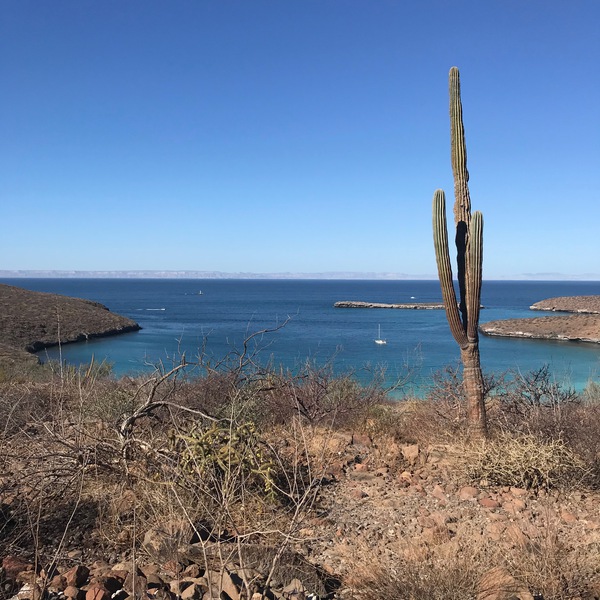
For thirty minutes he looked at glassy water all around him, close to the boat. A little distance away the wind blew the waves to crests. He denied this. It couldn’t be. How could the boat be in an island of calm with wind all around? “It must be something wrong with my perception,” he thought.
He fought to fill the sails instead of have them flag. He encouraged them with the sheets to spread one way or the other. He held the rudder over full. Small drifts of motion slowly changed the heading.
Whenever the wind took a sail, the boat would slowly pick up a little bit of way only to find itself head into wind again.
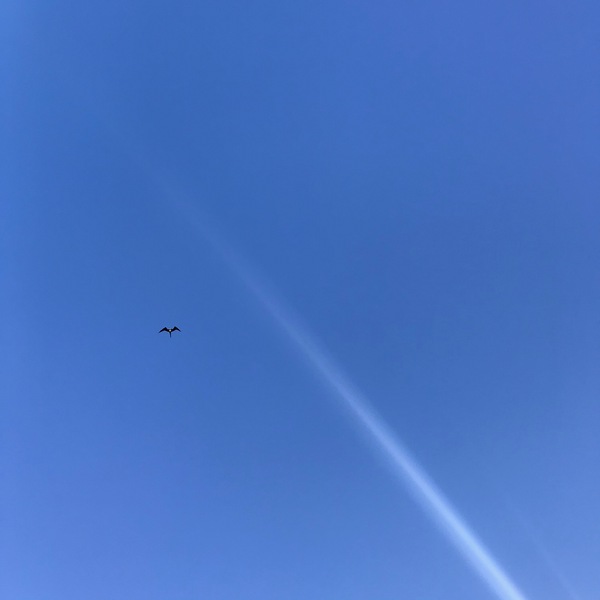
He paused. “Whatever I’m doing,” he thought, “it isn’t the right thing.” Without ideas about other things to try, he went to observation mode. The sun was bright and warm. Allowing the boat to drift and flag in the near calm, he sun bathed; watching. Some Magnificent Frigatebirds came to investigate. They circled overhead. Groups of them circled up high. Some individuals arrived to begin circling nearby. One hunted a fish by hovering low, startling the fish with its shadow. The fish jumped. The Frigatebird grabbed it with clawed feet.
The sails would frequently flag more violently. The heading might change. The boat would quicken its drift slightly. Once he went below to answer the call and heard a minor ruckus outside. Re-emerging he found that the boat had jibed.
Early afternoon passed to mid afternoon. He knew he needed to motor back to anchor. He lowered sail, flaked the main and tied it. Before he motored off, there was wind.
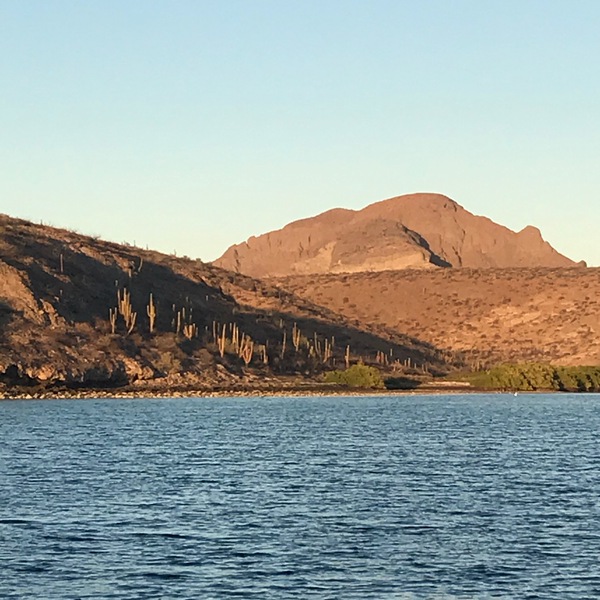
The next day, at anchor, he rowed his tender to a secluded beach. He brought snorkeling gear and watched schools of fish along a small reef. “It’s like swimming in the aquarium,” he thought.
Back on the boat in the afternoon, he looked out from the side at wind swept water stamped with a forty foot diameter, glassy, smooth circle among the rippling, cresting waves. The circle drifted slowly away as he watched. He wondered at it. What did I just see?
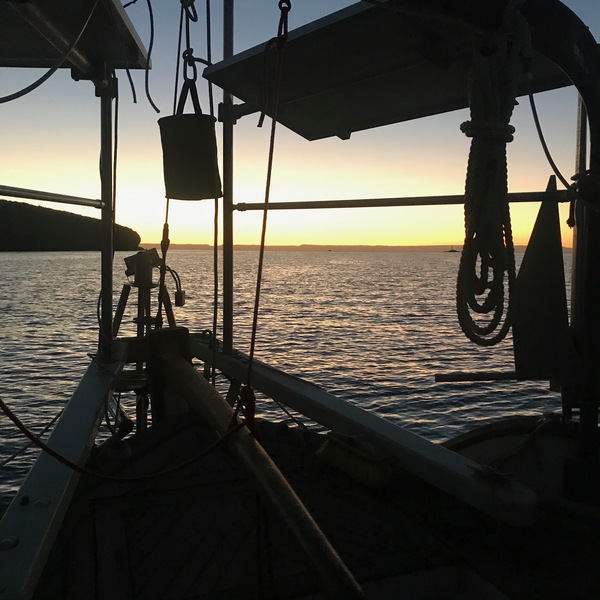
Nearing sunset, a couple of dozen Magnificent Frigatebirds circled high in the sky about a mile out to sea. They dotted the sky in a tight column. Each circled back to spiral upward, natural gliders finding the thermals and climbing for altitude. They climb and stay aloft, he thought, until encountering the next area of lift, ride that up, and seldom need to power themselves by pushing with their wings.
And then it hit him. The circle of calm. Head winds in every direction. The Frigatebirds circling overhead. He’d been inside of a thermal, the area of low pressure where air all around moves inward in order to feed, join the air pushing upward.
As the thermal drifted it would overtake the boat. The incoming air at its border would flog the sails and start the boat moving along with it. When he’d lowered sail, the thermal had drifted away from him, and there was wind.